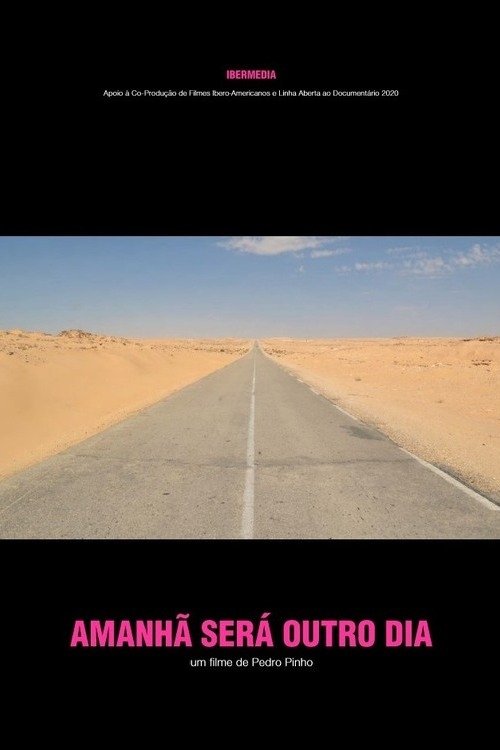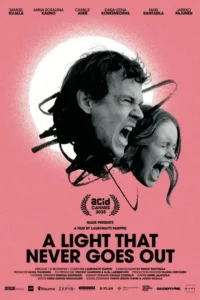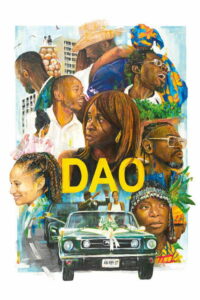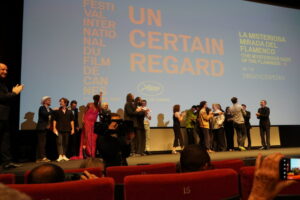Last updated on July 31, 2025
A film by Pedro Pinho
With: Sérgio Coragem, Cleo Diára, Jonathan Guilherme, Jorge Quintino Biague, Renato Sztutman, Bruno Zhu, Kody McCree, Everton Dalman
Alberto is a Portuguese environmental engineer who decided to change his life. He travels to a West African metropolis (an imaginary and futuristic city that has both Guinea-Bissau and Luanda), where he will work as an engineer in the construction of a road between the jungle and the desert. Moved by the hostility of the elements, the oppressive heat and the loneliness, Alberto meets Ema and Ben. Like him, these two locals are driven by an impulse to escape and overcome their origins. The bond between the three becomes for Alberto the only guarantee of mental health amidst a process of brutalization and widespread barbarism that spreads among his fellow expatriates, from the construction site to the NGO offices.
Our rate: ****
Tomorrow Will Be Another Day by Pedro Pinho offers us three and a half hours of cinema that draws inspiration from Antonioni (The Passenger), Kechiche (scenes of meals and group dances that stretch out, repeat themselves, are subject to mood swings, and reveal the unsaid), Serra (nihilism, lengthy dialogue, a taste for provocation, particularly the exploration of the life instinct) confronted with existentialist thoughts (films such as Tanner‘s In the White City, Robbe Grillet, and even Fassbinder come to mind), all in a protean manner, following a plot similar to the redemption stories so dear to Ferrara, for example. A very beautiful exercise in style, which plays with duration to better highlight the path traveled, the suffocation of the character and his need to breathe, to be reborn, in hostility, in adversity, beyond exoticism. What’s more, the film covers a wide range of themes, speaking with great precision about subjects that Pedro Pinho seems to know inside out: ethnography, racism and its corollaries, politics, issues of power and domination, political correctness, the hypocritical vision and condescending tendencies of NGOs on the ground, corruption, and the geography of Guinea-Bissau.













Be First to Comment